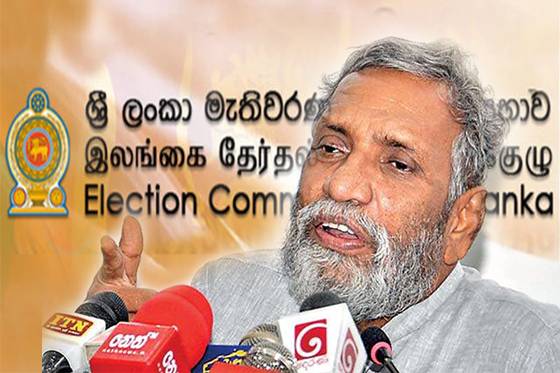Election Commissioner Mahinda Deshapriya said yesterday that the Election Commission would take an empathetic approach when dealing with fake news and misinformation during the run-up to the presidential election, saying any form of censorship to curb social media was impractical.
“We have decided we will not fence in the media. We will not play the role of watchdog. We will do everything by consensus. We can only control state media institutions directly. We will talk to the others and work in cooperation with them,” Deshapriya said.
The Commissioner made these comments while delivering the guest lecture on ‘New trends adversely impacting the free and fair nature of elections’ at the Thusitha Samarasekara Memorial Program held in Colombo.
Samarasekara, who was the Monitoring and Review Director of the Human Rights Commission of Sri Lanka from 2008- 2014, was killed in an accident while returning to Colombo after monitoring activities at the Uva Provincial Council elections.
Deshapriya said that media censorship was a thing of the past and not something possible in this day and age. “We can place restrictions on state media institutors but with regards to other privately-owned media institutions and social media, we can only make a request to abide by our guidelines,’ Deshapriya said.
He said that the laws dealing with the media contained in the Presidential Elections Act No. 15 of 1981 are restricted to false reports in newspapers as there were no other forms of media when the law was enacted.
The Commissioner also said that the Supreme Court had recognised the right to vote as an integral part of fundamental rights guaranteed in the Constitution with the right to franchise entrenched in freedom of speech and expression.
“We cannot deprive one group’s right to freedom of speech and expression and safeguard another group’s. We can turn social media into our strength if we act in the right way,” he said.
Deshapriya also called for more engagement by members of the public to ensure that elections were free and fair and that politicians and political parties were held accountable.
“We have the Right to Information (RT) Act as well as the National Audit Act. There are enough tools for people to use to demand accountability. Even one voice needs to be heard. Apathetically taking part in only exercising one’s franchise is not adequate,” he said. The Commissioner also disclosed that laws to deal with election campaign financing had been finalised and approved by Cabinet and should be in place by the time the next general election was held.
(FT)

